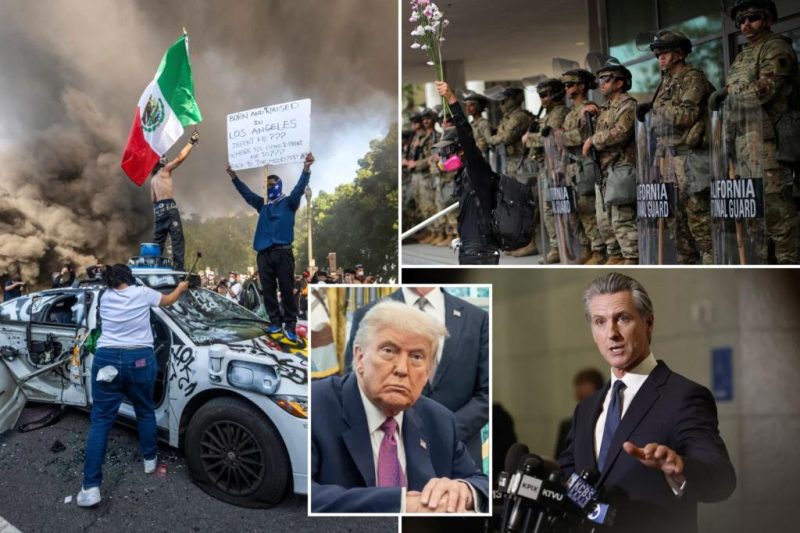
A federal appeals court delivered a significant ruling on Thursday, granting President Donald Trump continued command over National Guard troops deployed to Los Angeles. The deployment followed widespread protests sparked by immigration issues, highlighting the ongoing tension between federal and state authority during times of civil unrest.
The court’s decision underscores the complex legal landscape surrounding the use of the National Guard in response to domestic disturbances. While the specifics of the case remain somewhat shrouded in legal jargon, the ruling essentially upholds the President’s authority to maintain federal control over these troops, at least for the time being. This decision is likely to fuel further debate about the appropriate balance of power between the executive branch and state governments in managing internal security.
Critics argue that the President’s control over the National Guard in this instance represents an overreach of federal power, potentially undermining the authority of local officials to address the situation. They emphasize the importance of local control in managing such events, asserting that state and local leaders are better equipped to understand the specific needs and sensitivities of their communities. Conversely, supporters of the ruling point to the President’s responsibility to maintain national security and order, arguing that federal intervention was necessary to prevent further escalation of the protests.
The legal battle surrounding the deployment of the National Guard to Los Angeles is far from over. Further legal challenges and appeals are anticipated, indicating that this issue is poised to remain a prominent point of contention in the ongoing national conversation regarding the role of the federal government in responding to domestic crises. The long-term implications of this ruling remain to be seen, but it undoubtedly sets a significant precedent for future deployments of the National Guard in similar circumstances.









